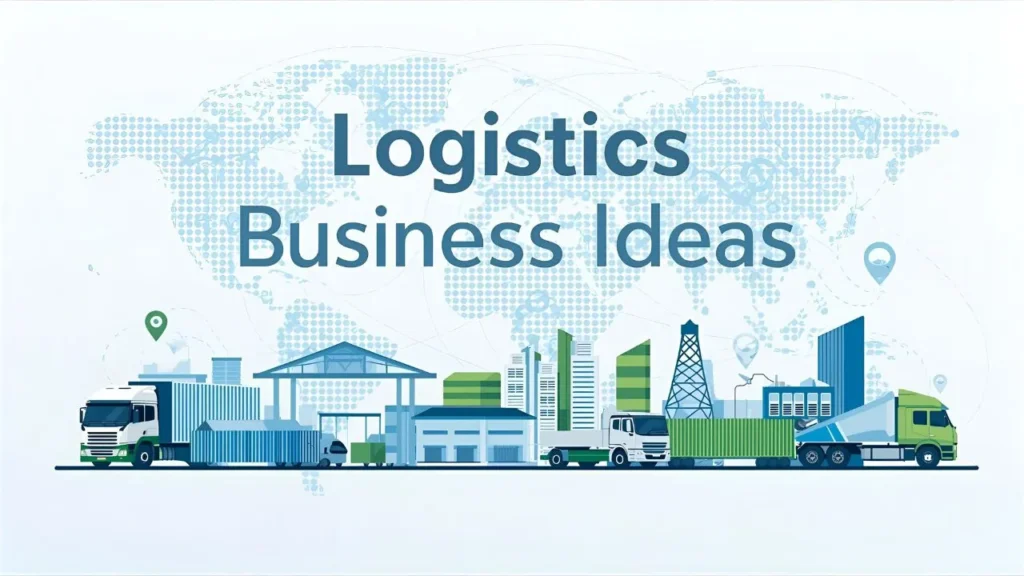The logistics sector, the complex but essential core of global trade, is going through a marvellous surge that positions it as a front-runner of the economy today. The sector has become more necessary than ever due to the increasing popularity of online shopping and consumers’ desire for quick delivery of their purchases. Through logistics, the whole earth becomes a marketplace where producers and consumers from even the most remote places can exchange their goods without any interruption in the flow of materials and products. In India, the logistics sector is especially lively, with government policies such as the National Logistics Policy and PM Gati Shakti that are designed to facilitate the creation of an integrated and efficient system.
The Indian warehousing sector alone is shining with the boom, as it has recorded an estimated compound annual growth rate (CAGR) of 15.64% that translates into 35 billion dollars by 2027. The world market will grow at a CAGR of 11.57%, to $774.07 billion by 2033, with cross-border e-commerce and regional supply chain networks being the biggest contributors to the growth. Hence, it is a desirable venture to establish a logistics business, and many Logistic Companies in India are already capitalizing on this opportunity. The following article will discuss a number of different logistics business ideas, exploring why the sector is so lucrative and providing a step-by-step overview of how to start one.
What is a Logistics Business?
A logistics business handles the transportation and handling of goods from the place of origin to the point of consumption. It has an intricate system of services, including transportation, warehousing, inventory, packaging, and information systems. It is literally the manager of the supply chain, coordinating the movement of goods in an efficient, safe, and timely manner.
Why is Logistics a Profitable Business in 2025?
The logistics sector is booming due to a series of significant trends and an enormous demand for efficient supply chain management. If you’re considering a logistics business startup, here’s why it’s a good idea:
- E-Commerce Boom: The current boom in online purchasing requires a sound and flexible network of delivery. Consumers need speedy and reliable service, and there is always a need for logistics services. Businesses, moreover, need reliable partners to handle the last-mile delivery.
- Technology Integration: Modern logistics firms employ technology for everything from route plotting to real-time tracking. This enhances efficiency, reduces costs, and provides them with an edge, allowing even small-scale operators to compete effectively. Furthermore, new technologies like AI and automation are opening up new opportunities.
- Specialized Services: There is an increasing demand for specialized logistics services. From cold chain transportation of perishables to managing sensitive medical equipment, there exists a niche for nearly any business. This enables entrepreneurs to specialize in and own a specific, high-margin market.
- Global Supply Chain Changes: Geopolitics and the need for regionalization of supply chains are forcing firms to rethink their networks. That requires new logistics firms that can manage complex cross-border flows as well as local distribution efficiently.
- Last-Mile Delivery Requirement: The final mile of the delivery chain, or the last-mile delivery, is a sophisticated and integral supply chain element. Companies are currently outsourcing this to specialized small-scale logistics business entities to meet customers’ demands for speed and convenience.
Best Logistics Business Ideas in 2025
1. Courier Services

Courier services involve door-to-door delivery and pick-up of papers and small packages. It is one of the most classic logistics business ideas, particularly for local delivery and same-day delivery. The Indian express, parcel, and courier market was worth a significant $14.92 billion in 2024 and projected to grow to $37.41 billion by 2033, showing a remarkable rate of growth (CAGR) of 10.8% between 2025 and 2033. You can even further strapecialize within a type of delivery, say medical equipment or legal documents.
- Why It Works: High demand, scalable business model, relatively low entry cost.
- Startup Costs: ₹1.5 Lakhs – ₹5 Lakhs
- Profit Potential: ₹15 Lakhs – ₹35 Lakhs a year
2. Local Delivery & Hyperlocal Logistics
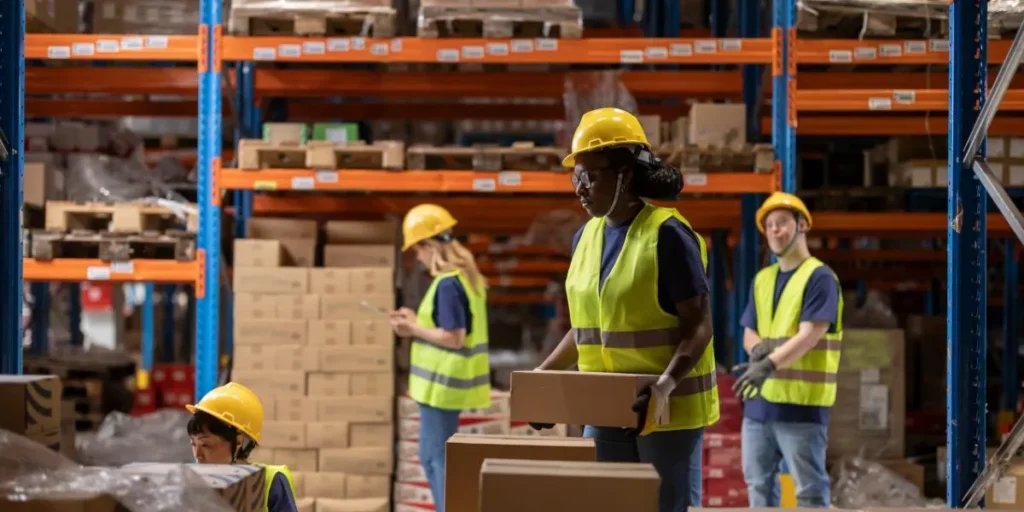
This is a small-scale logistics business dependent upon the delivery of goods within a limited geographical area, and typically within a city or within a few-kilometer radius. It’s a critical component of food delivery, grocery stores, and local retail, and also stands out as one of the most practical logistics startup ideas in India. India’s hyperlocal delivery business is expected to witness a staggering CAGR of 51.84% during FY2021 to FY2025, driven by the increasing desire for instant gratification on the part of consumers. Also, the model is tech-reliant in route planning and monitoring in real-time, hence extremely efficient.
- Why It Works: Addresses the growing need for instant gratification, strong local market presence.
- Startup Costs: ₹1 Lakh – ₹3 Lakhs
- Profit Potential: ₹10 Lakhs – ₹25 Lakhs per annum
3. Bike-Based Parcel Services

It is ideal for busy urban areas with high traffic. Bike-based parcel services provide a quick and environmentally friendly delivery solution for medium to small parcels. The two-wheeler logistics sector is developing at a rapid rate, whereas the e-commerce delivery market has the largest market share. Apart from that, the electric two-wheeler industry is expected to grow at a high CAGR of 24% as businesses adopt eco-friendly measures. Restaurants, online shops, and most companies rely on the model for their last-mile delivery needs.
- Why It Works: Low to initiate, eco-friendly, efficient, and fast in congested cities.
- Startup Costs: ₹50,000 – ₹2 Lakhs
- Profit Potential: ₹8 Lakhs – ₹20 Lakhs per year
4. Warehousing & Cold Storage
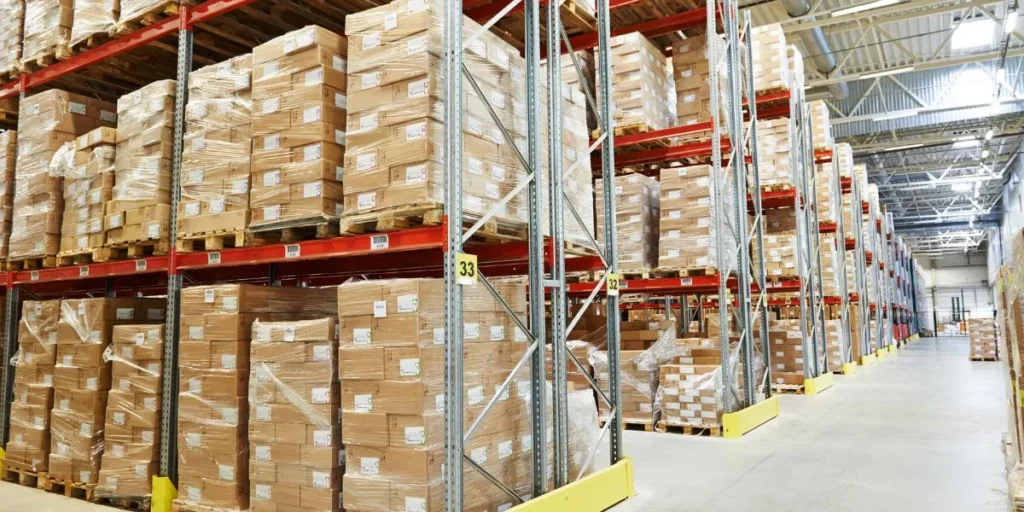
Due to more complex supply chains, the need for modern warehousing and storage space is on the rise. It is a capital-intensive but profitable venture and one of the most promising logistics business ideas to consider in 2025. The market size of the Indian warehouse is estimated at $38.99 billion in 2025 and is likely to expand to $59.34 billion in 2030, with a CAGR of 8.76%. Apart from this, India’s cold storage market is also expected to grow to a revenue of $18.26 billion in 2030 at a growth rate of 22.7% CAGR during 2025-2030. Cold storage itself is a high-growth business, given the increasing demand for fresh produce, drugs, and other temperature-sensitive products.
- Why It Works: High-margin business, service of the essence.
- Startup Costs: ₹20 Lakhs – ₹1 Crore+
- Profit Potential: ₹30 Lakhs – ₹1 Crore+ every year
5. Transportation Fleet (Trucking, Container Shipping)
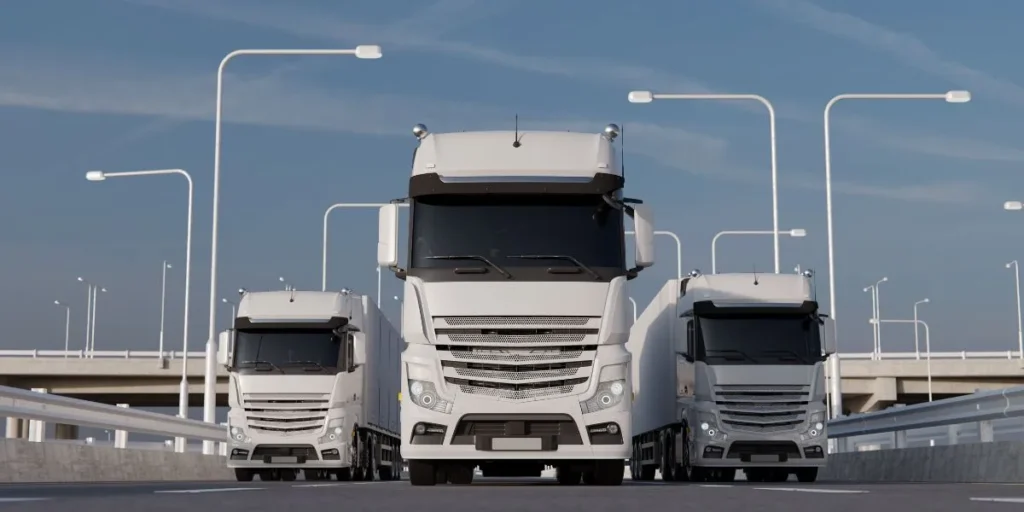
This involves acquiring or leasing a group of trucks to transport cargo on long-distance routes. India’s road freight transportation market is a whopping $153.9 billion in 2025 and projected to rise to $236.3 billion by 2030 with a CAGR of 8.95%. Whether you have a small fleet of trucks for local haulage or a large operation for container shipping, this is at the core of the logistics industry. On top of that, you can offer specialized services to large manufacturers or online stores.
- Why It Works: High demand from multiple industries, room for long-term agreements.
- Startup Costs: ₹10 Lakhs – ₹50 Lakhs+
- Profit Potential: ₹20 Lakhs – ₹80 Lakhs+ annually
6. B2B Freight Services
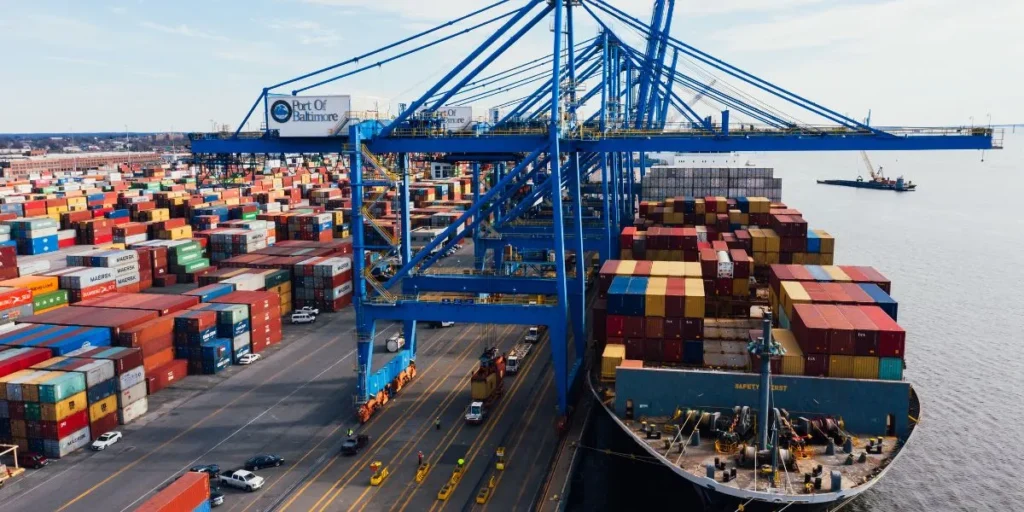
This involves providing logistics solutions directly to other businesses, handling large shipments, and facilitating complex supply chains. This can be done through the usage of full truckload (FTL) and less-than-truckload (LTL) freight solutions. The freight forwarding sector in India, which is the main component of B2B logistics, was valued at $11.84 billion in 2024 and is projected to grow at a CAGR of 6.4% from 2025 to 2033. The setup costs of the logistics company are variable, but the returns are high due to the heavy burden of business. It is an excellent opportunity to establish long-term relationships with corporate clients and receive recurring income, making it one of the most profitable logistics business ideas in India.
- Why It Works: Trustworthy, high-volume business, potential for repeat business.
- Startup Costs: ₹5 Lakhs – ₹25 Lakhs
- Profit Potential: ₹15 Lakhs – ₹50 Lakhs+ a year
7. Freelance Dispatching Services
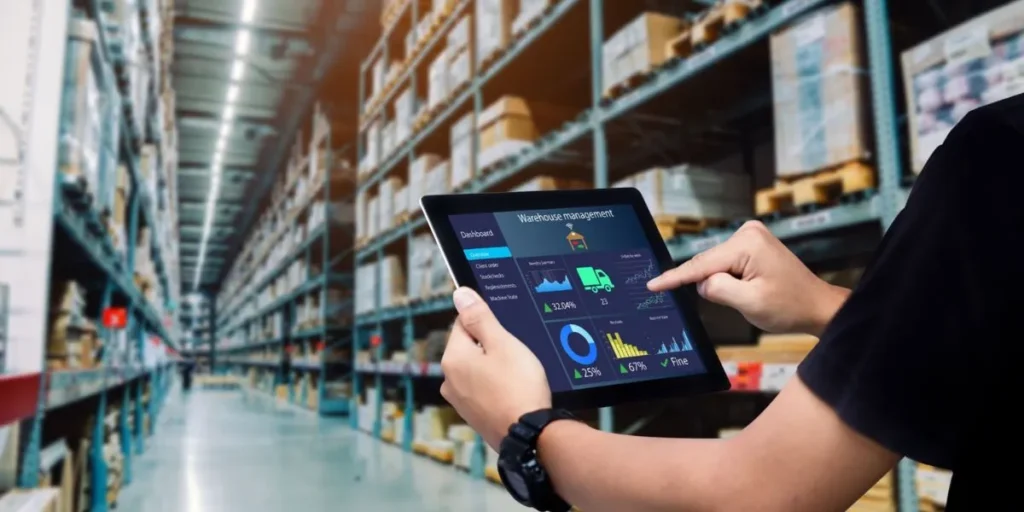
Freelance dispatching services are among the top logistics business ideas from home. You are an intermediary between truckers and companies that need goods to be transported. The Indian freelance platforms market is expected to expand to $775.6 million by the year 2030, with a strong CAGR of 24% from 2025 to 2030. You can run routes, negotiate rates, and perform clerical duties from a home office at minimal investment, depending on your negotiating capabilities and strong network.
- Why It Works: Low startup costs, high versatility, and a home-based business model.
- Startup Costs: ₹20,000 – ₹50,000
- Profit Potential: ₹5 Lakhs – ₹15 Lakhs per annum
8. Logistics Consultancy

The increasing complexity of supply chains has led to the need for companies to seek the assistance of consultants who can give expert advice on the optimization of the efficiency of the supply chain. You, as a logistics consultant, can help companies save time and money and reach a higher efficiency by simplifying their processes. Over the next 15 years, the Indian logistics sector will grow to $428.7 billion, representing a CAGR of 6.5%, which in turn will be a huge demand for logistics domain experts.
It is an expertise-driven service, and thus the principal investment is in your expertise and network. Also, you may specialize in route planning, inventory control, or technology implementation, making logistics consultancy one of the most promising logistics startup ideas in India.
- Why It Works: It is a good business with high profit margins and you hardly need any physical assets.
- Startup Costs: ₹50,000 – ₹2 Lakhs
- Profit Potential: ₹10 Lakhs – ₹40 Lakhs+ annually
9. Online Freight Brokerage

Similar to dispatching, online freight brokerage utilizes an online platform to connect shippers and carriers. This is a modern version of the old-style broker with greater transparency and efficiency. The global digital freight brokerage industry is expected to grow from $3.56 billion in 2024 to $4.47 billion by 2025 at a CAGR of 25.6%. You may build a platform or join a pre-existing network to get started. Additionally, this model allows you to tap into a large market without the need to invest in an actual fleet, making it an excellent example of tech-enabled small logistics business ideas.
- Why It Works: Technology-driven, scalable model, no physical assets needed.
- Startup Costs: ₹1 Lakh – ₹5 Lakhs
- Profit Potential: ₹12 Lakhs – ₹30 Lakhs annually
10. Inter-city Trucking

This enterprise is identified as the transportation of goods over long distances from one city to another. The market for trucks in India is set to increase to $47.14 billion by the year 2033, thereby registering a CAGR of 7.46% during the period from 2025 to 2033. The construction of infrastructure in India in the shape of new expressways and highways has made this business more profitable and efficient than ever before. This business can be started with one truck and grown over a period of time into a large fleet. Further, most companies are reliant on inter-city trucking for their supply chain, giving an ongoing source of business.
- Why It Works: Extremely important for national and regional trade, with extremely high demand.
- Startup Costs: ₹10 Lakhs – ₹25 Lakhs per truck
- Profit Potential: ₹10 Lakhs – ₹30 Lakhs per truck annually
11. E-commerce Delivery Partner Services

With the stronghold held by heavyweights such as Amazon, Flipkart, and Myntra in e-commerce, there is a massive need for last-mile delivery partners. The India last-mile delivery industry was valued at $3.53 billion in 2023 and is expected to reach $10.55 billion in 2032 at a CAGR of 12.93%. You can partner with these companies to supply a particular geographical area. It provides a consistent source of business and leverages the brand’s established network. Also, the majority of these companies offer training and support, hence it is a pleasing option for budding entrepreneurs. It is one of the most profitable logistics business ideas.
- Why It Works: Stable and predictable income, bolstered by a large e-commerce brand.
- Startup Costs: ₹2 Lakhs – ₹5 Lakhs
- Profit Potential: ₹10 Lakhs – ₹20 Lakhs annually
12. Rural Distribution Logistics
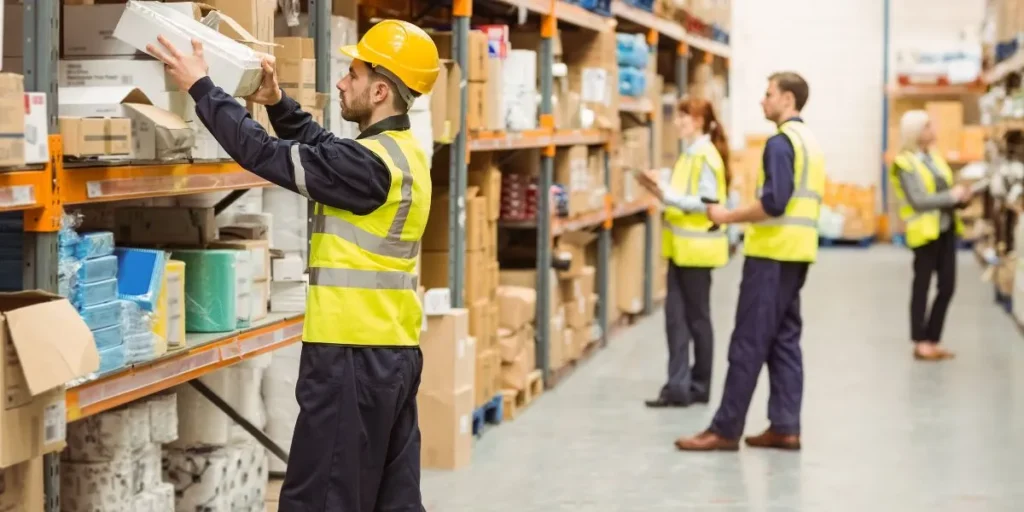
Logistics services are becoming increasingly required to link rural areas with their surrounding urbanized regions as economic development spreads in the countryside. The activities can be the transportation of agricultural products, selling the fruits of the earth in cities, or the delivery of consumer goods to rural villages. The Indian government, with the contribution of PM Gati Shakti, has led to a reduction in the cost of logistics from 13-14% to 8-10% of the GDP. It is a niche yet high-growth market. Government schemes and websites are also making these regions accessible for business.
- Why It Works: Untapped market, high growth potential.
- Startup Costs: ₹3 Lakhs – ₹10 Lakhs
- Profit Potential: ₹8 Lakhs – ₹20 Lakhs per year
Logistics Franchise Opportunities
What is a Logistics Franchise?
A logistics franchise is a business model where an individual or company operates a logistics venture using the mark and business system of a popular logistics brand. This approach provides a significant benefit by allowing business people to take advantage of a proven, reputable brand, a refined business model, and an established clientele.
Rather than building a logistics firm from the ground up, franchisees are able to take advantage of a corporation’s already established work methods, technology, and clientele, which reduces initial risk considerably and accelerates market entry. This is a popular method among aspiring entrepreneurs seeking to find a structured and guided way into the booming logistics sector.
Examples
- DTDC: As a pathbreaker in the courier industry, DTDC has a vast franchise network and is a name well known to the public. It offers various models of partnership, varying from low investment for the newcomer to complete setups, providing franchisors with exposure to an array of services ranging from e-commerce logistics to global shipping and warehousing.
- Delhivery: Delhivery is another big player, particularly in e-commerce logistics, and its franchise model is tech-driven last-mile delivery. Its franchisees have a robust platform for real-time monitoring, route optimization, and a good network that takes care of the forward and reverse logistics of major online stores.
- Blue Dart: With its high-value express delivery solutions, Blue Dart has a high brand standing. Its business model is appropriate for those looking to focus on high-quality, time-certain deliveries and offers high potential to address the corporate and high-value shipment markets with the credibility of a successful company.
- DHL: As a worldwide logistics leader, DHL provides franchisees with access to an enormous worldwide network. Through this franchise, you can handle both domestic and foreign deliveries, a gigantic competitive advantage. Further, you also have the benefit of DHL’s strong worldwide brand image, advanced technology, and complete training programs.
Benefits of Starting a Logistics Business Franchise
When considering various logistics business ideas, opting for a franchise offers a clear set of advantages that can significantly increase your chances of success. It’s not just about the brand name; it’s about the comprehensive support system that comes with it.
- Brand Recognition and Trust: A franchise is run under an established brand name, which automatically creates customer trust. Rather than investing time and funds in advertising to get credibility, you can benefit from an already established reputation.
- Well-established Business Model: Franchisors provide a proven business model that has been perfected over decades of operations. This eliminates much of the risk and uncertainty associated with opening an independent business, as you already have a blueprint to follow for everything from day-to-day operations to levels of customer service.
- Extensive Training and Assistance: Most franchises offer comprehensive training that covers all aspects of the business, including sales, operations, technology, and customer management. The ongoing support ensures that you are equipped to handle situations and adapt to changes in the industry, so it is the most suitable option for first-time business owners.
- Access to Technology and Network: Franchises give you access to sophisticated, proprietary technology for tracking, billing, and management. You are also part of a big, connected network, which enables you to process more business and provide more services than an independent business could ever possibly do.
Approximate Logistics Franchise Cost in India
The cost of investment for an India logistics franchise is not standardized and can significantly vary based on the brand, area, and the type of model you decide to go for. The breakdown below will provide a rough estimate of what all goes into the investment.
- Franchise Fee: This refers to the fee paid to the franchisor as an up-front payment for utilizing their brand name, business strategy, and intellectual property rights. This would range from a minimum of ₹50,000 for a low-scale delivery franchise to over ₹2 Lakhs for a master franchise or a large-scale model.
- Setup and Infrastructure Costs: This involves the investment to set up the physical warehouse or office space. It will also cover the rent or lease, interior decoration, computers, printers, weighing scales, and other necessary commodities. This is the main element of the business, where the cost almost comes in the range of ₹1 lakh to ₹5 lakh, depending on the area and location.
- Working Capital: You will need a buffer for normal working costs until the company becomes profitable. This will include personnel wages, fuel charges, electricity bills, and maintenance. A working capital of ₹50,000 to ₹2 Lakhs is usually recommended for smooth working during the initial months.
- Vehicle and Equipment Cost: Based on the model, you may need to invest in two-wheelers or a small delivery truck. This amount may vary from ₹50,000 to ₹3 Lakhs. There may also be a security deposit for some franchises, which is generally returnable, between ₹1.5 Lakhs and ₹2.5 Lakhs. Overall, a franchise-based logistics business startup can be a thoughtfully planned and financially rewarding one.
Logistics Business Startup Guide
It takes more than the purchase of a truck to start a logistics business; it involves a solid plan for survival in the competitive marketplace. This guide provides a step-by-step detail to help you start a successful venture, highlighting some of the most practical logistics business ideas that can give you a strong foundation for profitability and expansion.
Define Your Niche and Business Model: To start, you will have to decide what type of logistics business you are going to be. Are you going to be making local delivery, long-haul trucking, or a specialty niche market like cold storage? This will determine the tone for your whole business plan, including the services you will be offering to your target market.
Create a Business Plan outline: A business plan, if properly organized, is your guide to achieving your goals. Such a plan has to include your business goals, target customer profile, competitive analysis, marketing strategy, financial projections, and operational process description. Besides being a manual, a thoroughly prepared business plan also expands your chances to attract money from investors or banks.
Secure Funding: Logistics businesses, especially those with a real fleet or warehouse, can be costly to begin. Calculate your startup costs, which include car buys, licenses, insurance, and technology. Research options for funding, such as business loans, lines of credit, or bootstrapping, to ensure you have the funds necessary to cover initial costs as well as ongoing operations.
Satisfy all Legal and Regulatory Requirements: The implementation of this step in a very thorough manner is the way to ensure that your company is legal. Decide on the most suitable business structure, like a sole proprietorship, a partnership, or a Limited Liability Partnership (LLP), then go on to officially register your business with the concerned agencies. It is also very important to have the required licenses and permits for your business, such as GST registration, a motor carrier license, and other state permits.
Build Your Fleet and Infrastructure: Acquire the assets you require to conduct business. Having bought a fleet of vehicles, a single bike, or renting storage space facilities, ensure your assets are in good working order and durable. Also, invest in technology tools such as route optimization software and GPS tracking devices to automate your operations and keep customers updated with real-time information.
Train and Hire Your Team: Your dispatchers and drivers are your company’s representatives. Employ skilled personnel with the proper licenses and skills. Additionally, train them thoroughly in safety protocols, operating routines, and customer service norms in order to develop an effective and professional team.
Is Logistics a Profitable Business?
The logistics sector is a very lucrative business, especially with the consistent demand fueled by e-commerce and international commerce. It depends on your business model, executional efficiency, and your ability to meet customers’ needs.
- Multi-Stream Revenues: Your logistics company is not just a transportation business. You may earn revenues from other services like warehousing, inventory management, last-mile delivery, and supply chain consulting, diversifying your revenue and increasing overall profitability.
- Growing Demand: The consistent growth of internet retailing and global trade ensures a steady demand for reliable logistics services. Every type of business is getting its supply chain needs outsourced, which is creating a robust market for new and innovative logistics service providers.
- Scalability: More than half of logistics business models, particularly in digital platforms like online freight brokerage or dispatching, are very scalable. This means you can start small with minimal capital and expand your business as you get more clients and income.
- Niche Specialty: Focusing on a niche specialty, such as cold storage for perishable products or medical supplies, can mean more profit. They have specific needs and less competition, which allows you to charge a premium for your service and expertise.
- Efficiency in Technology: Adopting new technology like route optimization software and real-time tracking will reduce costs considerably and improve service quality. It saves fuel and time, which ultimately contributes to higher profitability.
How to Find Customers for Logistics
Customer acquisition and retention are crucial for any logistics firm’s survival and success. A strong customer base should be created with a proactive and multi-faceted strategy that incorporates the following:
- Focused Outreach: Instead of a broad brush, focus on targeting a specific market segment with your services, say small- and medium-sized e-commerce businesses or home-country manufacturers. This targeted approach allows you to tailor your pitch and directly address their specific pain points, thus increasing the chances of securing a contract.
- Online Marketing: Having a business professional online presence is no longer optional in the current marketplace. Utilize an easy-to-navigate website, search engine optimization (SEO) to generate organic traffic, and specialized social media advertising on platforms like LinkedIn to market your expertise and draw in B2B clients.
- Networking and Referrals: Attend industry conventions and trade shows to establish worthwhile in-person connections. Further, ask your existing customers for referrals; word-of-mouth is a low-cost but powerful marketing strategy in an industry that is trust-based, like logistics.
- Strategic Partnerships: Partnerships with other firms that can provide you with a steady stream of customers. You could partner with a fulfillment center, shipping company, or manufacturing plant that needs a steady partner for their distribution needs.
- Competitive Value Proposition: Articulate what your service does in a better or different way compared to the competition. Whether you offer quicker delivery times, reduced costs, or better customer service, a clear value proposition will distinguish you and gain you the attention of potential customers.
Challenges & Risks in Logistics Business
Each business comes with its setbacks, and logistics is no different. Some of the typical risks and challenges faced are:
- High Initial Investments: Logistics companies require a significant amount of money for trucks, machinery, and computerized systems. This is too much for new companies.
- Competition: There are numerous large, established firms and numerous small, local players, creating a crowded marketplace. To be noticed, one should have something unique.
- Complex Operations: Running a fleet, routing optimization, and on-time delivery can be a logistical nightmare in the absence of an appropriate system.
- Unpredictable Fuel Prices: The rising and unpredictable price of fuel can make an enormous difference to profit margins, especially for transport-intensive operations.
Conclusion
Logistics is a rapidly developing and core part of the modern economy, and it is replete with new avenues for new entrepreneurs. From small home-based low-budget ideas like freelance dispatching to high-capital ideas like warehousing, there’s something for everyone on every budget and for every dream.
The recipe for success is identifying a high-margin niche, creating a good business model, and leveraging technology in order to deliver excellent service. As international trade and online shopping continue to expand, the demand for efficient logistics business ideas will only grow stronger, so it is a sound and timely investment.
FAQs
Is logistics a profitable business?
Yes, it’s a very profitable business, with good demand and numerous high-return opportunities, mainly when specializing in an area.
How to start your logistics independently?
Start by conducting market surveys, making a good business plan, raising funds, and acquiring necessary licenses, insurance, and equipment prior to marketing your services to prospective customers.
What are the 7 Rs of logistics?
The 7 Rs of logistics are having the Right product, in the Right quantity, in the Right condition, at the Right place, at the Right time, to the Right customer, for the Right cost.
How do you get customers for logistics?
Customers are gained by building a strong web presence, networking locally with companies, offering competitive pricing, and offering quality customer service to gain repeat business and word-of-mouth advertising.
What is the cheapest logistics company to start with?
The cheapest logistics company startup ventures are usually home-based or service-based operations, such as independent dispatching or logistics consulting.
Can I start a logistics business from home?
Yes, you can undoubtedly start a logistics business from home, especially with models such as freelance dispatching, logistics consultancy, or online freight brokerage.
